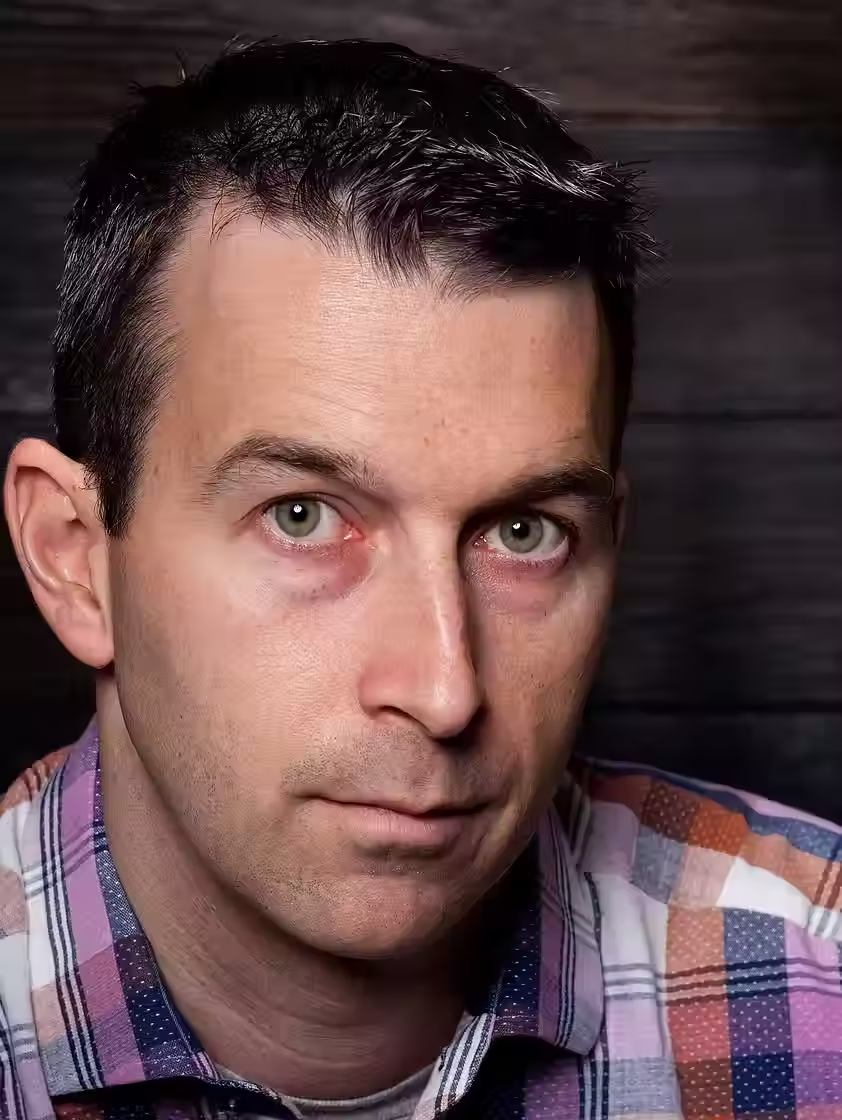Author Interview: Marco Carocari
- Michael Bradley
- Oct 11, 2022
- 4 min read
Marco Carocari first got hooked on crime fiction when he was ten when he read Agatha Christie's 4:50 FROM PADDINGTON. After that, he devoured every crime novel he could find. He's been shop assistant in a hardware store and spent a decade as a flight attendant. After that, he turned to his true passion, photography. His photos have appeared in books, magazines, greeting cards, and calendars. His debut novel, BLACKOUT, was nominated for a LEFTY Award, won for best LGBTQ fiction at the 2021 NYC Big Book Award and 2022 Independent Press Awards. He's been gracious enough to answer a few questions.

MB: Your debut novel, BLACKOUT, has been called a "fine whodunit with detailed, engaging prose." And that's just scratching the surface of the accolades it's received. What served as the inspiration for the novel?
MC: Digging up an old, truly awful manuscript and feeling I could do better; and reading tons of great thrillers and mysteries that never represented people like myself. I basically dared myself to write (and actually finish) a crime novel with a gay protagonist that I’d love to read.
MB: Tell us about your protagonist, Franco.
MC: Franco is a mid-forty-something photographer who is in a bit of a slump. Despite producing good work, he never quite hit the big times. His father was murdered in front of him when he was only four, something he still occasionally blames himself for. And he also picks the worst dates but hasn’t given up hope for that knight in shining armor.
MB: Without giving away any spoilers, tell us something about BLACKOUT that we won't find in the jacket copy or PR material?
MC: It’s as much a mystery (with thriller elements) as it is a love letter to friendship, friends, and ‘chosen families’.
MB: Let's talk about your writing style for a moment. Every writer has specific nuisances when it comes to writing. Some outline, some don't. Some have a special place where they write. Tell me a bit about your writing process.
MC: That’s a bit all over the page, no pun intended. When I started writing, some nine years ago, I just went with the flow. I did some outlining, but most of it happened organically during the writing. I worked almost exclusively at home on my Mac; then something changed and I could only write on my laptop, whether I traveled or was at home (no idea why). Now I have this beautiful office in our new home, yet most of my writing happens at a local coffee shop, again on the laptop. Go figure. If I had to guess why I’d say I occasionally need to shake it up, and get out of my comfort zone (there are a million things to distract me at home, whereas I seem more focussed at the coffee shop).
MB: When and how did you discover your passion for fiction writing?
MC: I’d say about nine years ago, when I started working on BLACKOUT. The first draft took four months, then lay dormant for a while before I reworked it for several years, and tried shopping it around. But I loved the process of creating these characters and stories, and haven’t stopped since. That said, I actually felt a passion and excitement I don’t always feel anymore, and I blame writing classes. As much as they’ve absolutely helped me become a better writer, I now also second-guess everything I do in ways that constantly stifle my spontaneity and creativity. My first few drafts were utter crap but, boy, did I have a blast—and I have to find that attitude again.

MB: You started reading mystery and crime novels at an early age. What books stood out to you as being quintessential to the genre?
MC: Everything Miss Marple and ‘Alfred Hitchcock presents the Three Investigators’ as a teen. And as a young man, Michael Connelly, Jefferey Deaver, Walter Mosley, and Dennis Lehane, and LGBTQ authors like Michael Nava and Joseph Hansen.
MB: You've made a shift from the very visual medium of photography to novel writing. How does the creativity needed for photography differ from that of your writing?
MC: In many ways they compliment each other—as I see or frame a shot, I ‘see’ the scene in my head when I write it, like a movie. For my artwork, I often spent hours getting that one shot (or try similar shots on different days). That’s very time-consuming but the photography benefits from it. I try to always write my scenes as cinematically as possible without dragging on for page after page. Also very time-consuming, especially in a second language (German is my first), but so worth it. Alas, I don’t crank out three finished manuscripts a year.
MB: What can we expect from you in the future? Are you working on any new projects?
MC: I’m writing a thriller set in Puerto Vallarta right now and researching/outlining a late 70s NYC noir project.
MB: And we'll wrap up with something a bit unusual. If your life had a theme song, what would it be? Please share a bit of the lyrics and what they mean to you.
MC: What A Fool Believes (The Doobie Brothers). LOL. I think the title is self-explanatory and applies to my younger self. I strongly believe I’ve moved past that (even if I still love the song).
Thank you for talking with me. Good luck with BLACKOUT.
To learn more about Marco and his book, you can visit his website at marcocarocari.com. You can also follow Marco on Facebook at facebook.com/marco.carocari, and on Instagram at instagram.com/marcocarocari/, and on Twitter at twitter.com/marco_carocari.
You can purchase BLACKOUT at these retailers.






Comments